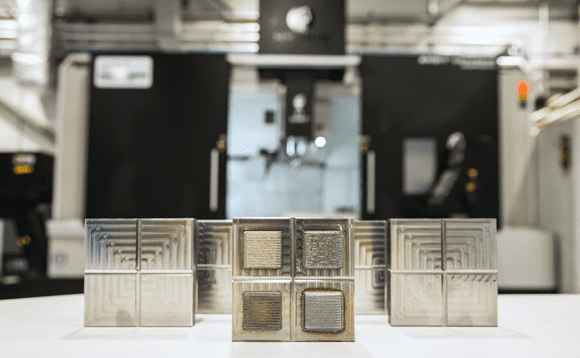The University of Strathclyde’s Advanced Forming Research Centre (AFRC) is collaborating with a consortium of six other companies on the £1.2 million DigiTool project, which aims to improve the lifespan and functional performance of dies used by the UK’s tool and die sector by using Additive Manufacturing, adaptive machining and other technologies considered part of ‘Industry 4.0’.
The two-year project is partly funded by Innovate UK, and project partners include Toolroom Technology Limited (TTL), Applied Tech Systems (ATS), Hybrid Manufacturing Technologies (HMT), INSPHERE Ltd and Kimber Mills International. The project’s funding is said to represent the biggest investment in the UK’s tool and die sector for more than forty years.
DigiTool’s final aim is to provide organisations of all sizes with the capability to remanufacture worn or damaged dies using advanced manufacturing technologies such as metal AM. Using new technologies and processes to remanufacture worn dies instead of replacing is expected to help firms save on costs and materials, while also improving sustainability.
The consortium is currently said to be exploring Additive Manufacturing and adaptive solutions for remanufacturing the damaged areas on dies using a retrofitted legacy machine tool. Scanning and metrology is used to discover worn areas, before Additive Manufacturing techniques such as Laser Metal Deposition (LMD) are employed to complete the remanufacture back to the desired die form.
Designed for easy integration within one digital platform, the DigiTool framework aims to provide an affordable solution for SMEs looking to adopt new technologies without purchasing a brand-new machine. Toolroom Technology Limited is leading the project, while the AFRC is managing Additive Manufacturing and other partners are delivering research on their respective areas of expertise, including metrology and scanning, adaptive machining and digital integration.
The new manufacturing methods will be combined in one platform at AFRC using its recently installed LMD Hybrid Machine, which combines AM and machining. Initial project trials have been carried out and the partners are now said to be analysing a die for a railway application from Kimber Mills, with plans to remanufacture and bring worn dies back into service.
Stephen Fitzpatrick, Team Lead for Machining and Additive Manufacturing at the AFRC, stated, “The consortium is all bringing different areas of expertise to the project, which is hoped to enhance competition across the industry through the uptake of innovation and new technology. Investment has been slow across the tool and die sector, which has made it difficult for organisations with limited resources to rethink their manufacturing process.”
“Through our Additive Manufacturing digital framework, we’ll provide these companies with access to new research, technology and insight at a low cost,” he continued. “Many firms within the sector may already have a machine that can be retrofitted to integrate Laser Metal Deposition, allowing them to upgrade current assets and save the costs of purchasing a brand-new machine.”
Robin Wilson, Innovation Lead & Catapult Relationship Manager, Manufacturing, Innovate UK, commented, “This is a forward-thinking project that can bring real benefits to the tool and die industry, helping traditional manufacturing businesses to embrace cutting edge digital technologies to boost efficiency and sustainability. The area of remanufacturing is a truly exciting one and we are delighted to support DigiTool and the diverse range of partners that are involved. We look forward to charting its progress. “
Source: Metal AM


